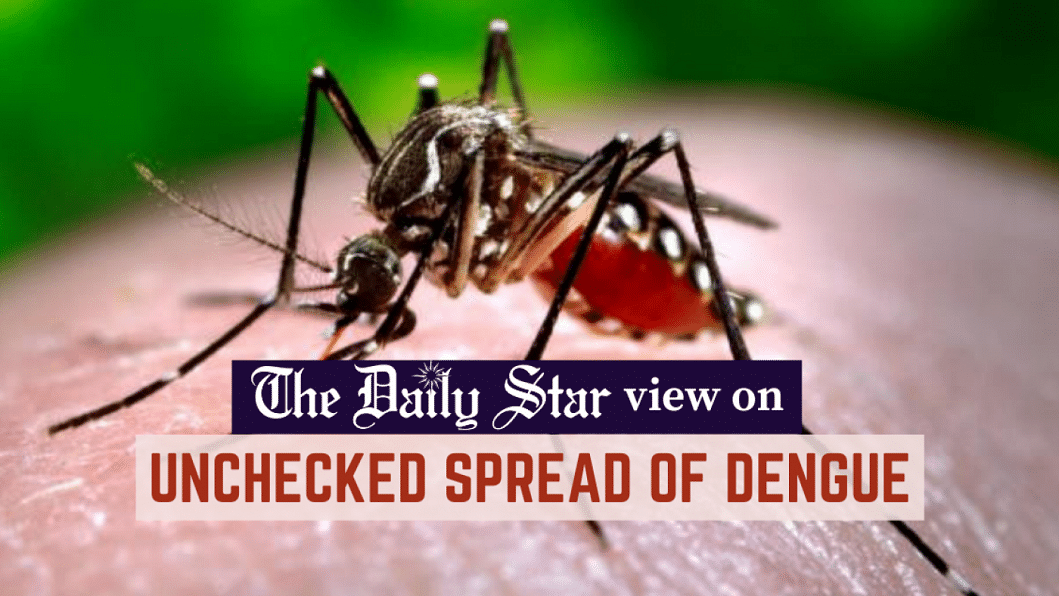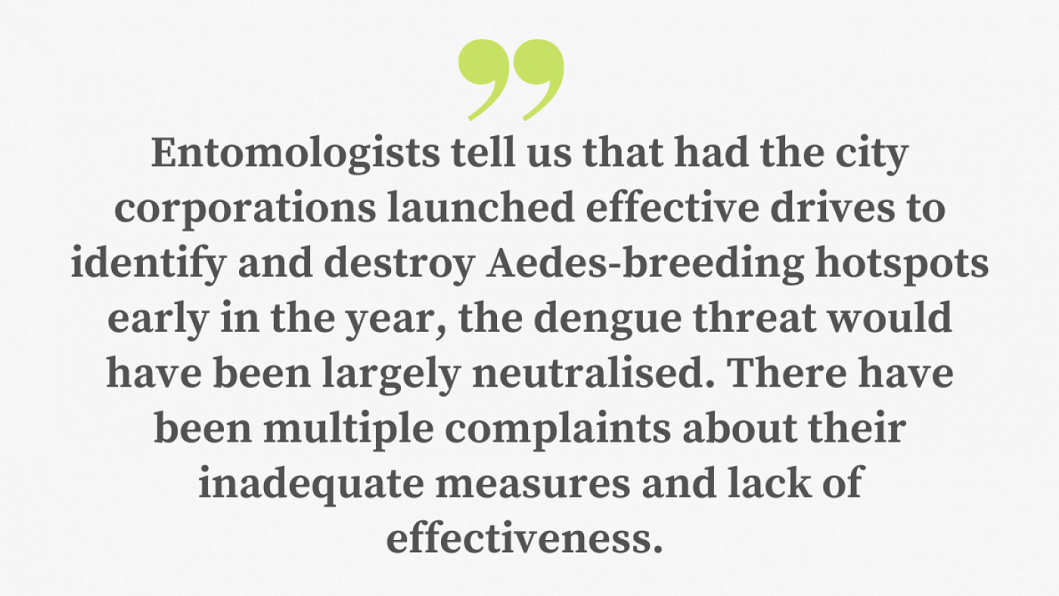A perfect storm courtesy of health authorities

There is no doubt that the ongoing dengue menace – which has reached almost all of Bangladesh barring four districts – was caused by a perfect storm of poor surveillance, insufficient mosquito-control measures, unplanned urbanisation with unchecked construction, bureaucratic botch-ups, and absence of a central policy or command to tackle it, despite the disease being around for over two decades now. Yes, lack of public awareness and the presence of multiple serotypes – a distinct variation within a species of virus – this year are also to blame, but those are more effects than causes. This makes the dengue menace a manufactured crisis, courtesy of relevant state authorities.
So far this year, the number of reported cases has reached 41,481 while a total of 162 deaths were recorded, which is only 17 fewer than the reported death toll in 2019 – the deadliest year in the history of dengue in Bangladesh. We are yet to pass the peak, with 21,932 cases and 86 deaths recorded in October alone, making it the worst month in terms of dengue infections. Experts have predicted that the rate of daily infections may not come down before mid-November. This means more infections and deaths, and possibly a new annual record, before the year comes to end.

It is hard to accept such tragedies knowing that proper action could have prevented them (mostly). After the massive suffering that had followed the outbreak of Covid-19 in Bangladesh, it was argued that our health system wasn't prepared to handle such a threat. True, but the manner in which we handled subsequent phases of the pandemic or subsequent disease outbreaks – of cholera, dengue, and even typhoid, to some extent – shows it still is not. Familiar problems continue to persist. Over the last several months, there have been reports on hospitals struggling with the load of incoming patients, bed-blocking, lack of early detection and proper testing, lack of awareness-raising campaigns, and the overall environment of chaos, mismanagement and lack of coordination among relevant authorities – health ministry, Local Government Division, city corporations, etc.
Why should these issues still exist even after a "successful response" to the pandemic, as the government claims? Entomologists tell us that had the city corporations launched effective drives to identify and destroy Aedes-breeding hotspots early in the year, the dengue threat would have been largely neutralised. There have been multiple complaints about their inadequate measures and lack of effectiveness. The government still doesn't have a central, regularly updated database of dengue infections, no integrated vector control policy to control the Aedes population, and no central command to coordinate activities by all relevant departments. What few measures are taken are hardly followed up on, or coordinated centrally, to maximise their impact.
This has to stop. We urge the government to take the dengue threat seriously, and direct maximum efforts to preventing it. After over 20 years of experience of handing this disease, there can be no excuse for not having a reliable, well-equipped and centrally guided system in place. Even one death caused by its failure is one too many.


 For all latest news, follow The Daily Star's Google News channel.
For all latest news, follow The Daily Star's Google News channel. 






Comments